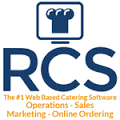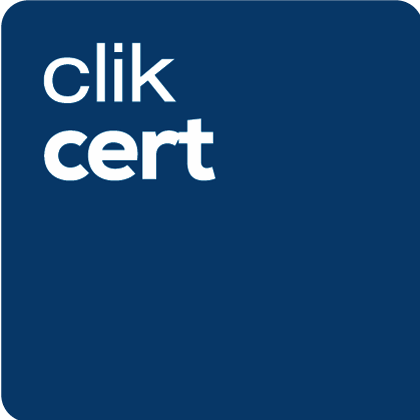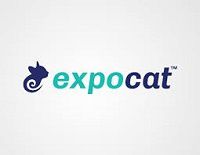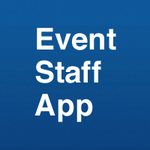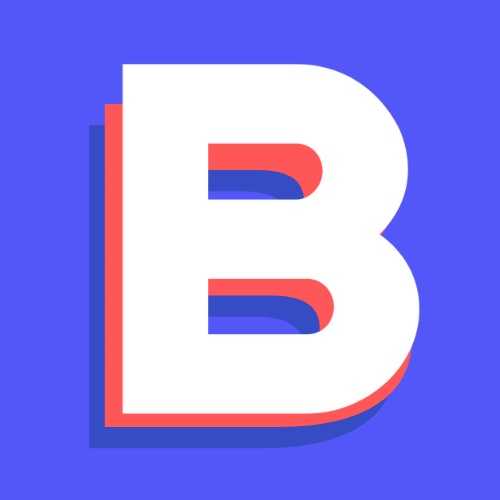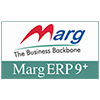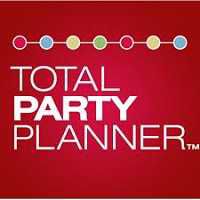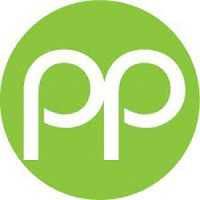Yes, most catering management software can be accessed from numerous devices and platforms, including PCs, laptops, cellphones, and tablets. Cloud-based technology enables customers to access the program from anywhere with an internet connection. Furthermore, several catering management software packages include mobile apps for improved access and convenience.
List of 20 Best Catering Management Software
Restaurant Catering Systems is a catering software that will skyrocket your profits. Our state-of-the-art tools and services are specifically created to generate leads and turn them into loyal, repeat customers, while also gaining referrals. Our syst...Read More Restaurant Catering System
EventPro is a software solution that seamlessly combines venue booking, event management, and catering management into one efficient system. Unlike other platforms with separate components, EventPro was intentionally designed to integrate all three f...Read More EventPro
Event Temple is a Venue Management and Catering Software crafted for a diverse range of establishments including Hotels, Restaurants, Gaming Facilities, Private Clubs, Golf Courses, Convention Centres, and Special Event Venues. From small gatherings...Read More Event Temple
Experience the ultimate restaurant management solution with Restropro. Designed and created by industry experts, our user-friendly software offers a comprehensive range of features including dine-in, home delivery, table booking, kitchen management,...Read More Restropro
Clik Cert is a certification software for field service professionals. It offers tailored features to simplify the creation, organization, and monitoring of digital certificates, forms, and assessments. This cutting-edge solution revolutionizes the c...Read More Clik Cert
Expocat is a catering software for catering companies worldwide. Our comprehensive system is tailored to cater to the needs of catering businesses, enabling them to efficiently manage their operations. By utilizing innovative features, Expocat aims t...Read More Expocat
A Event Staff App is a tool for simplified event management. With a app, say goodbye to complicated schedules and communication errors. A mobile-friendly platform offers real-time updates and streamlines yA staffing process, ensuring flawless events...Read More Event Staff App
Breezit - the perfect solution for small businesses and freelancers in the event industry. Our platform offers a range of user-friendly tools, including an SEO-optimised listing, a shareable booking link, and simplified payment and contract systems...Read More Breezit
PerfectTablePlan solution for seamless table seating planning for any event. Give yourself peace of mind and save time with this highly praised program trusted by countless companies and individuals. With its user-friendly interface, PerfectTablePlan...Read More PerfectTablePlan
Servegen solution for restaurant and bar management. Our highly customizable workflow is tailored to meet the specific needs of the hospitality industry. With 14 years of experience and top-notch technology, Servegen is the trusted choice for streaml...Read More Servegen
ResortSuite CATERING is a Sales & Catering software solution. Simplify your processes with our all-encompassing platform, handling everything from sales quotes and contracts to banquet orders and invoicing. Embrace efficiency and streamlined operatio...Read More ResortSuite
Marg ERP9+ Restaurant Software solution for effective management of your restaurant, bar, or any other outlet. Its user-friendly graphical and touch-based interface simplifies tasks like order placement, recipe costing, perishable inventory tracking,...Read More Marg ERP9+ Restaurant Software
Pxier Event is a event management solution. Streamline your operations with seamless booking, contract, and payment management, all while enhancing the customer experience. Perfect for venues of any size, Pxier Event ensures accurate handling of ever...Read More Pxier Event
Tripleseat is a highly effective event management tool designed specifically for restaurants, hotels, and other distinctive event spaces. Trusted by over 16,000 venues worldwide, it offers a comprehensive solution for event booking, planning, and exe...Read More Tripleseat
Total Party Planner - the premium catering management software tailored to streamline your entire workflow and meet all operational requirements. With its unparalleled features and user-friendly interface, this robust solution caters to every aspect...Read More Total Party Planner
Priava is the premier event and venue management software that streamlines the entire booking process. With its intuitive cloud-based platform, Priava effortlessly handles the intricacies of managing multiple venues, availability, event logistics, ca...Read More Priava
FoodStorm is a cloud-based catering solution thats revolutionizing the way caterers operate. Designed to cater to businesses of all sizes, FoodStorms Catering Software seamlessly manages corporate, retail, and event catering all in one platform. Elim...Read More FoodStorm
With Planning Pod catering management software, event planning has never been easier. This all-in-one platform allows you to efficiently manage menu, banquet event orders, clients, leads, staffing, rentals, production sheets, and event spaces. Say go...Read More Planning Pod
Caterease is a catering management software. With our robust Desktop version and versatile Web-based option, caterers can easily access and manage their data from any location. Say goodbye to manual processes and embrace the efficiency and convenienc...Read More Caterease
Newton Canteen Management System solution for optimizing operations and serving a larger workforce in less time. Say goodbye to paperwork and cash transactions with our fully electronic and cashless system, providing a smooth and effortless experienc...Read More Newton Canteen Management system
Learn More About Catering Management Software
- What is Catering Management Software?
- What Are The Recent Trends In Catering Management Software?
- Benefits Of Using Catering Management Software
- Important Factors To Consider While Purchasing Catering Management Software?
- What Are The Key Features To Look For In Catering Management Software?
- Why Do Businesses Need Catering Management Software?
- How Much Time Is Required To Implement Catering Management Software?
- What Is The Level Of Customization Available In Catering Management Software?
- Which Industries Can Benefit The Most From Catering Management Software?
- Conclusion
What is Catering Management Software?
Catering management software is a technological solution designed to help catering firms of all sizes optimize and automate their daily operations. It is a comprehensive program that includes menu planning, event management, customer relationship management, inventory management, staff scheduling, and reporting.
Catering enterprises can use this software to improve operational efficiency, client experience, profitability, and, eventually, business expansion. It eliminates the need for manual processes and paperwork, allowing caterers to focus on providing a consistent, high-quality service. Menu planning is an important component of catering management, and this software allows users to effortlessly develop and customize menus for various events and occasions.
It also assists in handling dietary restrictions and specific requests, ensuring that all clients' requirements are addressed. This software's event management skills allow caterers to manage several events at once, from early inquiries to post-event follow-ups. It automates operations like as contract creation, invoice generation, payment management, and event tracking, saving the catering crew valuable time and effort.
Customer relationship management tools enable catering organizations to keep track of all of their clients, including their preferences and contact details. This assists in developing long-term relationships with customers and providing individualized services. Inventory management is another critical component of catering, and this software allows firms to monitor and manage inventory levels in real time.
It aids in decreasing food waste, lowering expenditures, and keeping precise financial records. Additionally, catering management software includes a staff scheduling capability that allows customers to design and manage employee schedules, track attendance, and monitor labor expenditures. This ensures that the appropriate personnel are scheduled for activities, lowering the likelihood of errors and guaranteeing a seamless process.
Overall, catering management software is a comprehensive solution that may help catering organizations streamline their procedures, increase client happiness, and drive growth. With its extensive features, it is an excellent investment for any catering company seeking to remain competitive and successful in today's fast-paced market.
What Are The Recent Trends In Catering Management Software?
The catering industry is always changing, and with the advancement of technology, catering companies are turning to catering management software to optimize their operations. As a buyer, it is critical to stay current on the newest trends in catering management software to ensure you are investing in the finest solution for your business.
Here are some of the recent trends in catering management software that you should consider:
1. Mobile Accessibility: With the growing usage of mobile devices in the catering sector, catering management software with mobile accessibility has become an essential feature. This enables caterers to access critical information and manage their catering business on the road, hence enhancing efficiency and customer service.
2. Integrated Online Ordering: In today's digital age, customers demand the ease of online ordering. Catering management software that includes integrated online ordering capabilities is gaining popularity since it simplifies the ordering process and enhances communication between the caterer and the customer.
3. Cloud-Based Solutions: Because of its accessibility, scalability, and cost-effectiveness, cloud-based catering management software is quickly gaining popularity among catering enterprises. It allows caterers to access their data from anywhere, at any time, and includes automatic upgrades and backups, making it a dependable and secure alternative.
4. Smart Inventory Management: Caterers may find inventory management to be a time-consuming and tiresome process. Catering management software allows caterers to track their inventory in real time, set automated reorder points, and generate reports to assist them manage their stock levels more efficiently.
5. Event Management Features: Catering businesses frequently manage many events at the same time, and event management software may assist caterers in staying organized and on top of their events. This comprises functions like event scheduling, task assignment, and vendor management.
6. Modification And Integration: Every catering business is unique, and catering management software that allows for modification and integration can give caterers with a tailored solution that suits their individual requirements. This can include capabilities like personalized branding, menu creation, and interaction with other company tools.
Benefits Of Using Catering Management Software
Catering management software is an invaluable resource for any catering company trying to streamline operations, improve efficiency, and boost profits. This program has numerous benefits that can have a big impact on the performance of your organization.
we'll go over the primary benefits of adopting catering management software, so you can make an informed decision about which software to invest in.
1. Real-time Event Management: One of the primary advantages of catering management software is the ability to handle events in real time. This means you have access to current information about all parts of an event, such as guest lists, meal preparation, and scheduling. With this information at your fingertips, you can make immediate decisions and adjustments to ensure that every event runs successfully and meets your clients' expectations.
2. Effective Menu Planning: Menu planning is an important part of catering and can be time-consuming. However, catering management software allows you to swiftly and efficiently build menus that take into consideration dietary restrictions, budget, and guest preferences. This not only saves time, but also assures that your menus are precise and appropriate for each event.
3. Smooth Communication: Clear communication is essential for the success of any catering business, and catering management software supports this with features such as automated alerts, event reminders, and vendor management. These characteristics ensure that all participants in an event are on the same page, eliminating the possibility of miscommunication and errors.
4. Streamlined Invoicing And Billing: Another key advantage of employing catering management software is the ability to automate invoicing and billing procedures. This program allows you to effortlessly produce and send invoices, track payments, and generate reports, saving you time and lowering the possibility of errors. This also enables for faster and more accurate billing, resulting in improved cash flow for your company.
5. Inventory Management: Keeping track of inventory is critical in any catering business, and catering management software makes it easier than ever. This software enables you to track ingredient quantities, manage stock levels, and receive alerts when supplies are running low. This helps to reduce food waste and ensures you have the right components for each event.
6. Improve Customer Service: Catering management software allows you to track customer preferences, orders, and comments, resulting in a more tailored experience for each client. This can boost client happiness and retention, resulting in repeat business and positive feedback.
Important Factors To Consider While Purchasing Catering Management Software?
Efficiency and organization are critical components of running a successful catering business. This is where catering management software can be useful. However, with so many options on the market, it might be difficult to find the best one for your specific business requirements.
To make the process easier for you, here are some key considerations to consider while selecting catering management software:
1. Fundamental Features: The first and most important element to assess is the software's fundamental functionality. This depends depend on your company's needs, but some popular features to check for include event and menu management, inventory monitoring, invoicing, and staff scheduling. Make a list of the features that are critical for your organization and ensure that the software you select includes them.
2. User-Friendliness: Because your team will be using catering management software on a daily basis, it is critical to select a system that is easy to use and intuitive. This will ensure a smooth transfer and easy adoption for your workforce. Look for software with a simple and easy-to-use interface, and if necessary, provide training for your employees.
3. Integration: In today's digital age, it's critical to have software that can communicate with other systems like accounting software, online ordering platforms, and event booking software. This enables a smooth data transfer and eliminates the need for manual data entry, saving you time and lowering the possibility of error.
4. Customization: No two catering firms are the identical, and you may have unique requirements that necessitate a tailored solution. Look for software that enables for customisation, such as adding your branding to customer-facing papers or creating personalized reports. This will allow you to modify the program to your own business demands.
5. Scalability And Pricing: When selecting catering management software, consider your company's size and future expansion objectives. You want a solution that can scale with your company and provide several pricing tiers as it grows. When evaluating pricing choices, make sure to include any additional fees such as setup, training, and support.
6. Customer Support: When purchasing any product, it is critical to have dependable customer support in case you face problems or require assistance. Look for software with a dependable support team that provides several levels of support and has a proven track record of assisting clients.
7. Security: Because catering management software handles sensitive information including client data and financial records, security must be prioritized. Look for software that provides data encryption and safe backups to protect your company and your customers' data.
8. Reviews And Recommendations: Before making a purchase, conduct research and read reviews from other catering companies that have utilized the software. You can also seek suggestions from coworkers or visit trade shows to observe the program in action. This will help you better grasp the software's strengths and limits.
What Are The Key Features To Look For In Catering Management Software?
Catering firms frequently handle a high volume of events and orders, making effective management critical to success. This is where catering management software comes in: a valuable tool for streamlining operations and increasing production. But with so many options on the market, how can you select the best one for your business? To make an informed decision, below are the important elements to look for in catering management software:
1. Event Management: The program should provide a full event management function that allows you to create, track, and manage all events from a single location. This offers functions such as event scheduling, event details, attendee lists, and customized event templates.
2. Ordering And Invoicing: The program should provide a built-in ordering and invoicing system that allows you to effortlessly create and send invoices, track payments and manage orders. This feature should also support online payments and integrate with common payment gateways.
3. Menu Creation And Customization: A catering management software should provide a simple menu creation tool that enables you to build and adapt meals for various events. This should contain options for dietary restrictions, allergies, and bespoke pricing.
4. CRM And Customer Communication: Look for software that incorporates a customer relationship management (CRM) system for storing and managing customer data, communication history, and preferences. It should also include tools for client communication, such as email templates and automated follow-up.
5. inventories Management: Keep track of your inventories using software with inventory management capabilities. This includes tracking items, checking stock levels, and receiving warnings when inventory is low. Some software also integrates with suppliers to automate stock replenishment.
6. Staff Scheduling And Management: One of the most useful aspects of catering management software is staff scheduling. Look for software that lets you set employee schedules, manage availability, and track hours. This component should also provide communication options for easy interaction with personnel.
7. Reporting And Analytics: To monitor your company's success, use software that includes comprehensive reporting and analytics capabilities. These should comprise sales reports, financial statistics, customer analytics, and others.
8. Mobile Accessibility: Many catering firms require on-the-go administration, so search for software that is mobile-friendly and available on a variety of devices, including smartphones and tablets.
Why Do Businesses Need Catering Management Software?
Catering companies have a lot on their plates (no pun intended) when it comes to operations management. Running a catering business may be time-consuming and difficult, with tasks such as preparing proposals, controlling inventory, managing staff schedules, and ensuring a consistent customer experience.Here's where catering management software comes in. But why should firms use catering management software?
Let's go further and discover the advantages of this indispensable instrument.
1. Streamlined Operations: Catering management software aims to simplify and streamline different parts of the catering industry. It provides a single platform for managing orders, menus, employee schedules, invoices, and other activities, eliminating the need for various systems and manual processes. This not only saves time, but also reduces the likelihood of errors, multiple bookings, and other operational issues.
2. Improved Efficiency: Catering management software improves corporate efficiency by automating operations. It removes the need for human data entry, automates repetitive activities, and delivers reports and insights in real time. This not only allows employees to focus on more vital responsibilities, but it also ensures that all processes function smoothly and efficiently.
3. Increased Revenue Businesses: Can use catering management software to develop professional-looking proposals and menus that will impress potential clients. The software also helps firms track and manage inventories, ensuring that popular menu items are never out of stock. This eventually leads to higher client satisfaction and repeat business, which generates more money.
4. Improved Customer Experience: Catering management software helps businesses keep track of client preferences, dietary restrictions, and allergies, allowing them to create a more personalized and superior customer experience. It also enables seamless connection with clients, from placing orders to delivering updates and comments. This leads to satisfied customers and great word-of-mouth, which is essential for any catering business.
5. Cost Savings: Catering management software helps to reduce expenses by automating and optimizing numerous processes. This involves decreasing paper waste, eliminating duplicate bookings, avoiding blunders and errors, and optimizing employee schedules. All of these variables lead to significant long-term cost reductions, making catering management software an excellent investment for organizations of all sizes.
How Much Time Is Required To Implement Catering Management Software?
The time required to establish catering management software varies depending on a number of factors. These criteria include the size and complexity of your catering business, the software's capabilities and modules, and the level of customisation required. On average, the implementation procedure can last from a few weeks to a few months.
To acquire a more accurate estimate of the time required for your firm, speak with the software supplier about your specific needs and goals. They will be able to provide a timeline and walk you through the implementation process. During the implementation time, you and your team will be required to accomplish a few tasks.
These could include data migration, setting up user permissions, and teaching your employees on how to utilize the software efficiently. The better prepared and organized your team is, the easier and faster the implementation process will be. It is critical to understand that the time spent adopting catering management software is well worth it.
Once fully integrated, the software can help you optimize your catering operations, increase efficiency, and boost overall customer pleasure. So, despite the initial time commitment, the long-term benefits make it a smart investment for your organization.
What Is The Level Of Customization Available In Catering Management Software?
Catering management software provides a diverse set of features and functionalities to help streamline and optimize catering operations. When selecting the best software for your organization, one crucial factor to consider is the level of customisation available. This refers to the capacity to customize the software to your individual requirements and tastes.
Customization possibilities vary by software vendor, but most catering management software allows you to customize menu development, pricing, event management, and reporting. This provides a more efficient and personalized experience for your company and customers. Some software also provides advanced customization features, such as the ability to brand invoices and proposals, link with current systems, and establish custom workflows and rules for your specific business procedures.
It is critical to examine the level of customisation available in catering management software because it can significantly impact the efficiency and efficacy of your operations. The ability to customize the software to your specific business needs can save time, decrease errors, and ultimately increase client satisfaction.
When evaluating catering management software, be careful to ask about the level of customization available and how they can be integrated in your organization. This will guarantee that you select software that can evolve and expand alongside your business, resulting in a more effective catering operation.
Which Industries Can Benefit The Most From Catering Management Software?
Catering Management Software is a useful tool for a wide range of companies, but some may benefit more than others. In this buyer's guide, we'll look at which sectors can gain the most from integrating catering management software in their firm.
1. Event Planning And Catering Companies: The most obvious industry to profit from catering management software is, of course, event planning and catering companies. These firms rely significantly on event management and catering services, which may be difficult and time-consuming. Catering management software enables such firms to streamline their procedures, track orders, manage inventory, and schedule employees more efficiently, leading in enhanced production and profitability.
2. Hospitality Industry: Hotels, resorts, and other hospitality firms stand to benefit greatly from employing catering management software. With the capacity to handle all parts of catering services, such as menu planning, event organization, and resource allocation, hospitality businesses can provide a consistent experience for their customers. The program may also help identify and manage any dietary restrictions or food allergies, guaranteeing a safe and enjoyable dining experience for everybody.
3. Corporate Cafeterias: Catering management software can transform business cafeterias. It can assist employees improve their ordering and payment processes, as well as track inventories to ensure they have enough materials to satisfy demand. The program may also provide reports to assist with budgeting and menu planning, ensuring that the cafeteria runs smoothly and cost-effectively.
4. Educational Institutions: Schools, universities, and other educational organizations can also profit from employing catering management software. The software's capacity to manage meal planning, billing, and inventory enables these institutions to provide nutritious and economical meals to students and staff. It can also help with catering for events and special occasions like graduation parties and conferences.
5. Healthcare Facilities: Catering management software can be an extremely useful tool for hospitals, nursing homes, and other healthcare facilities that serve meals to patients and residents. The software can assist patients manage dietary restrictions and allergies, track their food intake, and keep accurate billing records. It can also help manage food expenditures and inventories, allowing healthcare institutions to function more efficiently.
Conclusion
To summarize, investing in catering management software can significantly benefit your business by streamlining processes, increasing efficiency, and improving the entire client experience. By carefully considering your individual requirements and completing extensive research on available solutions, you can select the ideal software that matches your budget and meets your goals.
When making a decision, keep features like menu development, event administration, and reporting capabilities in mind, as well as user-friendliness and customer support. With the appropriate catering management software, you can take your business to the next level while staying ahead of the competition. Happy planning, and happy catering!
Catering Management Software FAQ's
Can Catering Management Software Be Accessed Across Multiple Devices And Platforms?
Is Catering Management Software Future-Proof and Adaptable To Emerging Technologies Like Ai, Blockchain Or Iot?
Yes, most modern catering management software is meant to be future-proof and adaptable to upcoming technologies such as artificial intelligence, blockchain, and the Internet of Things. These software solutions are constantly updated and integrated with new technology to boost productivity and stay current with industry trends. Catering management software is well-equipped to meet the demands of a rapidly changing technological landscape, thanks to features such as automated operations, powerful data analytics, and seamless connection with other systems.
Is There A Free Trial Offered to Assess Catering Management Software Before Committing?
Yes, many catering management software vendors provide a free trial period so that potential clients can evaluate the product before making a purchase. This trial period normally lasts 14 to 30 days and allows consumers to test the software's features and functionalities. It is an excellent way for businesses to verify whether the software matches their specific requirements and is worth investing in for their catering operations.
Does Catering Management Software Offer Data Security Features And Meet Regulatory Compliance Standards?
Yes, most catering management software solutions offer advanced data security features such as encryption, access controls, and data backups to ensure the safety and privacy of sensitive information. Additionally, reputable software providers make sure their systems comply with regulations like the General Data Protection Regulation (GDPR) and Payment Card Industry Data Security Standards (PCI DSS) to maintain high levels of data integrity and protection. This provides peace of mind for both businesses and their clients.
Can Catering Management Software Integrate Seamlessly With Existing Tools And Platforms?
Yes, catering management software is intended to work easily alongside existing tools and systems. This enables for a more streamlined and efficient procedure because all data can be accessible and used in a single system. Some catering software also includes API connectors, which make it easy to sync with third-party platforms like accounting or inventory management systems. With these integrations, catering enterprises may save time and effort while increasing productivity and revenues.

